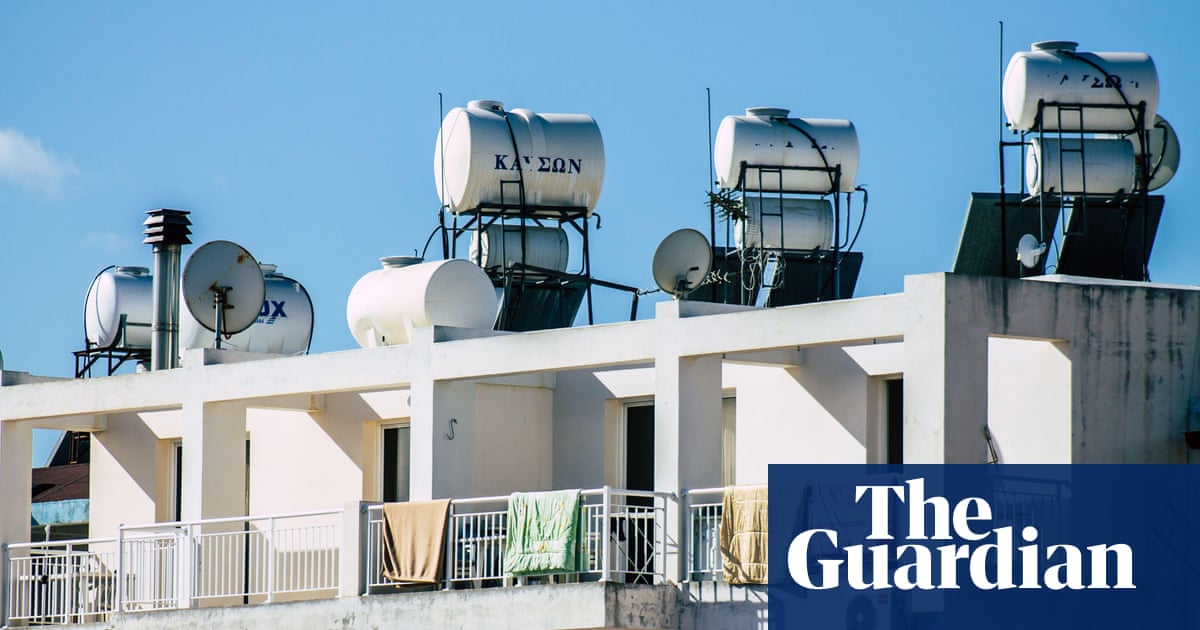Cyprus has outstripped all other EU member states in embracing hot-water solar systems, with an estimated 93.5 % of households exploiting the alternative energy form for domestic needs.
The solar thermal systems not only collected solar energy as heat – usually generated through electricity and the burning of fossil fuels – they were extremely cost-effective and had helped spawn an entire industry, he explains.
“It’s been great for low-income families and then there’s the jobs: so many have been generated,” the MP says. “There are the local manufacturers who produce the parts and then all the people who are trained to install them. It’s big business.”
In his role as environment commissioner, Theopemptou pushed hard to make the solar systems obligatory on all newly constructed residential and commercial buildings – a move instituted by Israel back in the 1970s.



From the point of view of efficiency, solar heaters beat pv. With pv you need to convert the sun’s energy into electrical energy, with losses, then convert electrical energy into heat by extracting it from the outside with the heat pump. If you store it in batteries to heat up water later, there’s even more losses. Depending on the outside temperature, there’s a limit to what the heat pump can do, which an internal electric heater inside the water tank takes over to reach usable shower temperature.
With solar heating the sun heats water, that’s it. Not only you can yield energy from the sun more efficiently, this doesn’t need complex electronics or semiconductors, so it’s also better from an environmental impact point of view.
And it doesn’t have to be either/or. In my country, solar heating usually comes as a package deal with pv heating. Some companies are making hybrid pvs. Solar panels become less efficient as they heat up, so a hybrid pv would use coolant to keep them within their most efficient working temperature and extract that heat to be used for space heating, using radiators or floor heating or forced air systems, and/or water heating. Having both just makes sense, since it makes your pv needs (and your upfront investment) smaller and the maintenance on solar heaters is much simpler.
Can second this: direct heating of anything is always going to be more efficient. Also, only ~25% of incident energy on a PV cell is actually captured as electriciy (see here for theoretical backing), and the rest is lost in a lot of ways, but much of it is converted to heat at the PV cell, and if you’re capturing that you’re using direct heating anyhow.
That is also true for solar heaters when there is no sun. and there are not many places that have climates where heat pumps cant operate these days.
Also air source heat pumps can have a COP of 3.5 so or higher. so even with a lower efficiency from the PV you might get ahead. You also get gains from the high COP on cloudy days where you might need resistance heating on the thermal one
I dont think you can claim any of them is better without doing the math.
The math depends on where you’re living, but what would you mathematically compare here, available required roof area ?
Because the SWH, if put in a place like cyprus, consumes next to no electricity. Pumps and electronics, but even that is pretty nil if the tank is on the upper floors. So let’s assume a mild sunny climate where the electrical heaters of both the heat pump and the solar heater are off. The heat pump requires power and the water heater doesn’t. As for cloudy days, with proper insulation, a SWH can keep the tank piping hot for a few days.
Personally i don’t see how a heat pump could beat a SWH in costs over time.